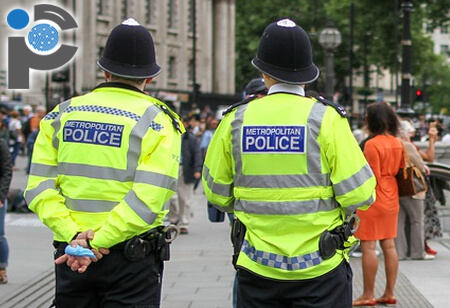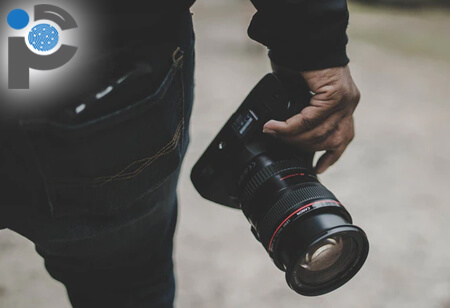How Police Detectives and Private Investigators are Different
July 3, 2021 - Reading time: 8 minutes
Updated on: August 7, 2025
Private investigators work for private individuals and companies (this is why we use the word “private” in the phrase “private investigators”), whereas police detectives work for law enforcement agencies which are funded by governments, effectively making them “public investigators”. This is the main difference between police detectives and private investigators, however, there are many other differences which we will explore deeper in this article.
1. Less red tape and paperwork
Private investigators are typically bound by less regulations and red tape than police detectives. Whereas the police will typically need abide by a myriad of ever-changing regulations, ethical standards policies, risk assessments, along with various other forms of bureaucratic form filling and box ticking; private investigators typically have less formalities to deal with, even in jurisdictions where a regulatory body licenses private investigators.
Of course, many detectives that work in law enforcement eventually decide to pursue careers within the private investigation industry instead; and many of our colleagues that have taken this leap will comment on their relief to avoid paperwork and box ticking which forms a big part of modern policing in the UK.
2. More discretion
Police detectives are in many cases bound by the decisions of other people; whether that be a senior investigating officer or a prosecution lawyer deciding not to pursue a case. Private investigators have more freedom to act on instructions that are provided by their clients, without interference from other people or bodies.

3. More flexible working hours
As private investigators, we often take on cases which are limited to an allocated time. However, if the case takes an unforeseen turn, then our client may ask us to work overtime. Depending on the case, we can work from the evening until the early hours of the morning, or purely during normal business hours.
Working within a detective agency provides a certain amount of freedom to delegate work to specific agents as needed. Whereas police detectives may need to work a certain amount of hours in order to be eligible for their salaries, private investigators have a lot more freedom to arrange their working hours and concentrate time on cases as needed.
4. More freedom over gadgets and equipment
While we don’t mean to suggest that police detectives are underequipped (this is definitely not the case), private investigators can sometimes have more freedom over the type of equipment and gadgets which they can use, depending on the agency.
For example, if one of our private investigators feels that it would benefit the case, (s)he might decide to spontaneously pull out a drone in order to discreetly monitor a subject. While police detectives certainly can use technology such as drones, they might seldom be able to decide that doing so could benefit the case at a moment’s notice, and use one without seeking permission from higherups.
Private investigators often spend a substantial amount of time (and money!) choosing their camera gear, lenses, discreet cameras, and any other equipment which might benefit a case. We can effectively use whichever gear we decide is appropriate, without seeking approval or funding.
5. Detectives investigate crime
This may seem like an obvious point though it should be mentioned… Police detectives are usually tasked with investigating crimes, of varying severities and associated risks. Private investigators, on the other hand, can investigate anything from infidelity, to accident injury claims, fraud, and a long list of other cases.
Private investigators typically will not delve into criminal investigations, though this can depend on the jurisdiction – investigators in north America more commonly accept criminal cases, whereas in the UK this is less common. Whether a private investigator is looking into a criminal matter or a personal dilemma, all investigations are completed with the same level of skill, dedication, and attention to detail.

6. Police detectives can access confidential data
One of the major advantages held by police detectives is their ability to access confidential data and information which is off-limits to normal members of the public. Law enforcement agencies around the world have access to vast amounts of records and intelligence data which can be used whilst conducting investigations.
While private investigators do not have access to the same information as police detectives, they are able to utilize public records, and information from third parties such as social media providers, to help locate people or assist during investigations.
7. Detectives can carry self-defence equipment
Police detectives around the world will often carry firearms as part of their ordinary work. In the UK of course, detectives may not ordinarily carry firearms but may instead have access to PAVA spray or Tasers.
By contrast, private investigators working in the UK have absolutely no rights to carry firearms, or any object which could be used for the purpose of self-defence. In the UK at least, private investigators have no special rights to carry firearms or any weapons at all… And rightfully so. A competent investigator will not make themselves known to the subject or anyone else. When conducted properly, the risks involved with private investigation should be kept to an absolute minimum and there should be no need for an agent to possess self-defence equipment.
8. Different investigative techniques
Police detectives are often bound by conventional investigative techniques which must be used in order to ensure that evidence is admissible and meets the relevant thresholds for prosecution. The evidence must stand up to scrutiny and have been gathered within the relevant police guidelines.
Private investigators on the other hand have more freedom to gather evidence using unconventional methods. Whilst private investigators are not allowed to break the law, they are free to use more imaginative tactics which might be described as immoral by some.
Of course, the techniques used during any given investigation will largely depend on the intended use for our evidence in each case. If we are gathering evidence for use in civil courts, for example, then care should be taken to ensure that all evidence gathered is admissible.
9. More resources and funding
We often read about police budget cuts and funding issues. However, when the police decide that a matter is truly worthy of their attention, they will typically receive adequate funding in order to conduct a full and thorough investigation to the best of their abilities.
When police are tasked with conducting surveillance, for example, they may use several agents, or even a dozen or more people working on the case at any given time.
During private investigations however, we are often confined by our client’s budgets. Surveillance assignments are often conducted by just one investigator at a time, which is often adequate, though adding agents will almost always benefit a surveillance case.
Other times clients may decide to stop an investigation at a time when the investigator believes they are close to making a breakthrough.
Whatever the case, having a higher budget for an investigation will ensure better results in virtually every scenario. As private investigators we must cater to our clients’ budgets in each case.
Choosing a career in private investigation
Many of the investigators that work for our agency come from a previous background in law enforcement. Police detectives are traditionally held in the highest esteem within our industry, and we are always eager to work with more former law enforcement detectives.
If you are interested in making the switch into private investigation, then feel free to read through our blog for more insights on the detective industry, or browse our homepage for more information about us and the services that we offer.
Related articles
You are reading the PrivateInvestigators-UK blog — home to the UK's leading detective agency. Learn more about us by visiting our homepage PrivateInvestigators-UK.com.